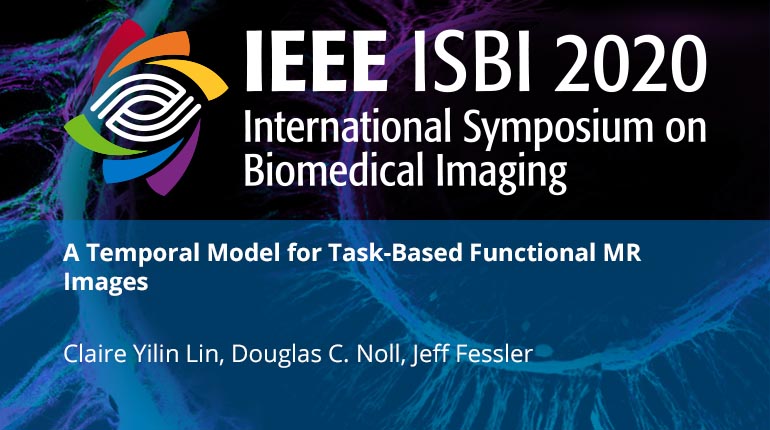
Already purchased this program?
Login to View
This video program is a part of the Premium package:
A Temporal Model for Task-Based Functional MR Images
- IEEE MemberUS $11.00
- Society MemberUS $0.00
- IEEE Student MemberUS $11.00
- Non-IEEE MemberUS $15.00
A Temporal Model for Task-Based Functional MR Images
To better identify task-activated brain regions in task-based functional magnetic resonance imaging (tb-fMRI), various space-time models have been used to reconstruct image sequences from k-space data. These models decompose a fMRI timecourse into a static background and a dynamic foreground, aiming to separate task-correlated components from non-task signals. This paper proposes a model based on assumptions of the activation waveform shape and smoothness of the timecourse, and compare it to two contemporary tb-fMRI decomposition models. We experiment in the image domain using a simulated task with known region of interest, and a real visual task. The proposed model yields fewer false activations in task activation maps.
To better identify task-activated brain regions in task-based functional magnetic resonance imaging (tb-fMRI), various space-time models have been used to reconstruct image sequences from k-space data. These models decompose a fMRI timecourse into a static background and a dynamic foreground, aiming to separate task-correlated components from non-task signals. This paper proposes a model based on assumptions of the activation waveform shape and smoothness of the timecourse, and compare it to two contemporary tb-fMRI decomposition models. We experiment in the image domain using a simulated task with known region of interest, and a real visual task. The proposed model yields fewer false activations in task activation maps.
 Cart
Cart Create Account
Create Account Sign In
Sign In





